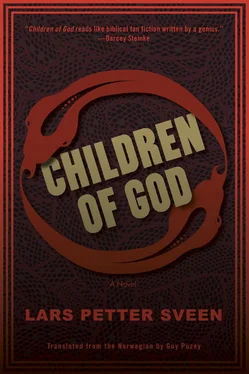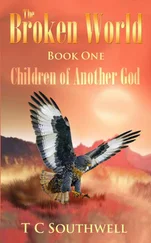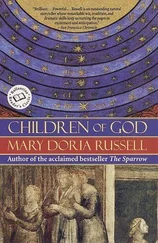I nodded, but I no longer knew which stories were true and which were just intended to make Jesus, the Son of God, seem like Moses.
“It was a spider,” said Jacob. “A spider spun its web in front of the cave where Jesus and his parents were hiding. Because of that web, the soldiers didn’t think there was anybody inside. I once asked Jesus,” Jacob continued, “like the fool that I was, if it was true, if there really was a spider in the cave.”
Jacob fell silent and bowed his head. “Jesus seemed so, I don’t know what else to call it, but he seemed tired,” he said. “His shining eyes, they were surrounded by shadows, and his hands were shaking. I could see it, even if he tried to hide them.”
“What did he say?” I asked.
“He said he was scared of spiders,” said Jacob. I remember that conversation; I even remember the night and those dark clothes we were wearing. The wind was silent like waves can be out on the water. The stars were faint, almost flickering, and there was Jacob’s raspy voice. “He was scared of spiders.” That’s how he said it.
“A savior afraid of the smallest creatures: it’s laughable. But I’ve thought about it,” he continued, “and I think that Jesus was showing me how small and simple we humans can be, how we can all be afraid of the smallest things. We’re small and simple when we let ourselves be driven by what we fear instead of what we love. Today, my brothers have shown me how small and simple they are.”
Jacob is my firstborn. I am his. He has no children; I don’t know why, and I don’t want to ask. I have no right to demand any such thing or to grieve about it. I gave him so little when he was small, and as my first, he is entitled to more from me. I will admit there are nights, dark and cold and empty nights, when I think about how I’ve never seen him with a woman. He’s my eldest, and Sarah, together with the man I once was, young and different, will both die with him.
Jacob will be with the Lord, while I will wander in the darkness, looking for Sarah.
Thoughts like these weighed heavily on me for several years, but now they’re small and light, and eventually they’ll fade away and vanish. I see a child, I see a grown person, I see people who have destroyed themselves, and I think of how Jacob will take everything I’ve built up on into the future. If it were to stop with him, what can I do? I’ve done my part. I had Jacob, I was his father. I led him to Jesus.
I was broken. Jacob was struggling with his words, they were tearing him apart. He bore his mark of evil. He was trying to say “I’m going for a walk, Father,” but what came out of his mouth was: “I’m g-g-g-going for a wa-wa-wa forawa-wa-walk.” He started to tear out his nails, his fingertips became all red, and I had to check them every morning and evening to see if there was any swelling or inflammation. I made sure that he always had someone with him, or that he was near me.
Some people said I should do the right thing and let him go.
Others said I’d done all I could.
I made offerings at the Temple. Priests and officials gave me their advice.
“The Lord God has given you a sign,” said one of my family. “It’s up to you now.”
One night, when I couldn’t sleep, I got up before cockcrow and washed my hands and face in the light of the oil lamp. I scrubbed my fingers and palms and used my nails on my cheeks, nose, and forehead; it was as if I had oil stuck to my skin and hair. I knelt down, lowered my head, and immersed it in the water. I breathed through my ears and listened with my mouth. Everything was upside down and back to front. The water was alive; it ran inside me, whispered to me as it flowed and gave me resolve: I would have to fight. The water spoke to me.
I would have to take up the battle against the evil power in Jacob, against what was tearing his speech apart. I would do anything to save him, to cleanse him.
But I was no savior. I had no power over this evil. I would have to search.
Some men who worked for me, and who came from the city of Samaria, had spoken of an old woman who lived in Bethel. I summoned the men and asked them to tell me about this woman. They apologized and said they couldn’t vouch for her. It was just a rumor, a story heard by the daughter of a sister of the husband of a sister.
“What kind of story?” I asked. The man who’d dragged his whole family tree into the equation stared at the ground and fell silent.
“I’m not going to punish you,” I said. “Nobody will hear of this, you have my word. This is between us.” The man nodded but still kept his eyes on the ground. He told me that a young girl in his extended family, a niece of his brother-in-law, had a neighbor, and the father of this neighbor had told her about his sore toe. His foot had been caught while he was working to clear a patch of land, and within a few days the foot had already turned a nasty color, so he traveled up to Bethel, since these people lived in the area around Jericho, not far from the river Jordan. In Bethel, there was an old woman who mixed some herbs in a bowl, poured boiling water on top, forced him to drink it, and then placed her hands over the poor man’s sore toe. While he sat there, watching with his own eyes, all the agony and swelling, bruising and pain vanished. His skin regained its normal glow, and the happy man walked all the way back to where he came from without feeling anything other than the Promised Land beneath him.
I took Jacob with me and left for Bethel that same day. The men described the route to me and did their best to explain what the old woman looked like and where I might find her, but since neither of them had seen her themselves, I set no great store by their eyewitness accounts.
When we arrived in Bethel and began to ask around, it soon became clear that the people in those parts knew the old woman. She lived with a man I understood to be her son, and his family.
The old woman was blind, her hands shook, and when she spoke, she began shouting. I asked her son if she often had visitors, to which he shook his head and said that it had been a long time since people last came to her.
“People step aside if they see her now,” he said. “Even my children keep away from her. She pulled out the hair of one of my sons. Since then she hasn’t been allowed to stay in the house with them. She sleeps in the stable, with the animals.”
“She pulled his hair out?” said Jacob, in his own way. The man looked at him, and then looked at the ground and asked me what Jacob had said.
“He was asking if she really pulled out your son’s hair,” I said. The man nodded and called out a name, and a boy with his head covered came running over to us. The boy went up to his father, and the father pulled the rags off his head. His hair had been shorn, but the skin on one side of his head was bright red.
“It’ll grow back,” said his father.
I gave them some coins, wished them God’s peace and future happiness, and we went back the same way we’d come.
I didn’t give up. On another journey, we crossed the Jordan and followed the river Jabbok up a valley, where we were greeted by a ragtag mob of men. We were far away from everything, but I’d been told that these people were peaceful and that they were led by a prophet with God-given talents. I wanted him to set Jacob free.
“Are you here to meet the Master?” asked a man with one eye and one deep, black hole. I told him we were and held on tightly to Jacob.
“This is my son,” I said. “We wish to meet Hananiah and seek his counsel.”
“The Master will see you,” said the one-eyed man. “And remember, in the kingdom of the blind, the one-eyed man is king.” We stared at him, and he began to laugh. “Come on,” he said. “Follow me.”
Читать дальше











